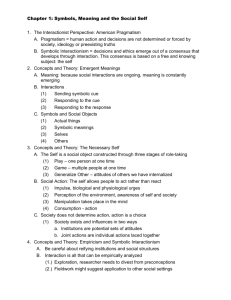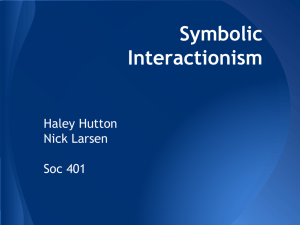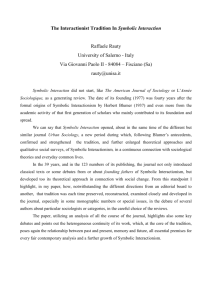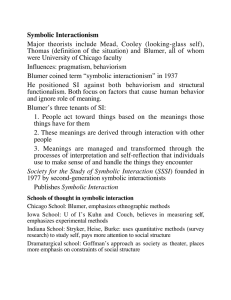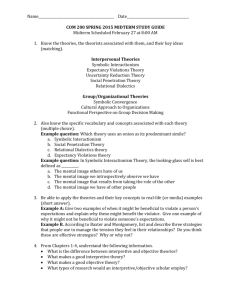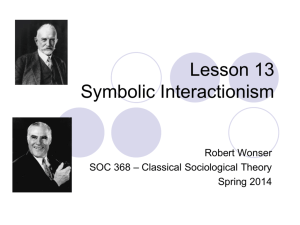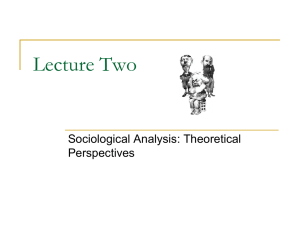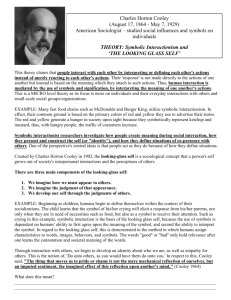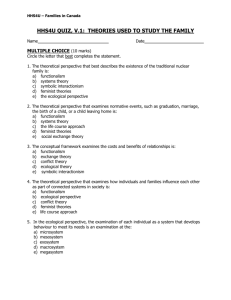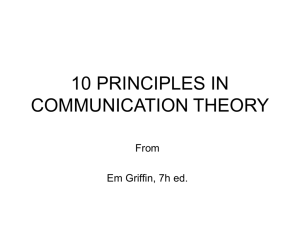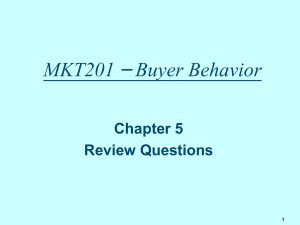File - Catherine Bliss
advertisement
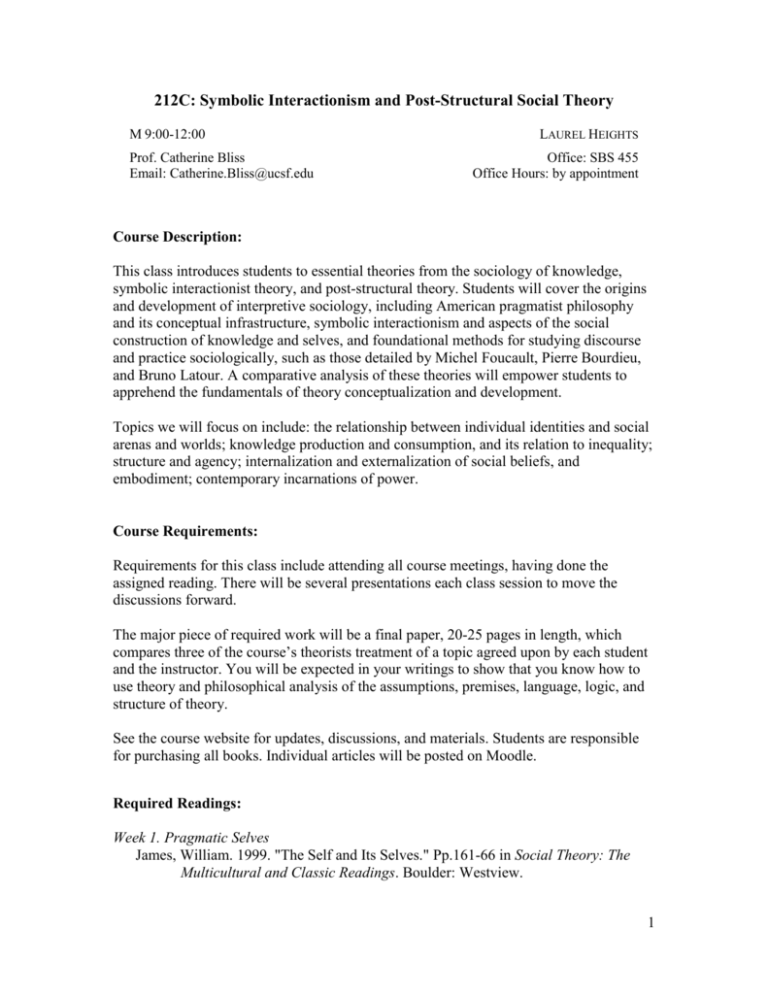
212C: Symbolic Interactionism and Post-Structural Social Theory M 9:00-12:00 Prof. Catherine Bliss Email: Catherine.Bliss@ucsf.edu LAUREL HEIGHTS Office: SBS 455 Office Hours: by appointment Course Description: This class introduces students to essential theories from the sociology of knowledge, symbolic interactionist theory, and post-structural theory. Students will cover the origins and development of interpretive sociology, including American pragmatist philosophy and its conceptual infrastructure, symbolic interactionism and aspects of the social construction of knowledge and selves, and foundational methods for studying discourse and practice sociologically, such as those detailed by Michel Foucault, Pierre Bourdieu, and Bruno Latour. A comparative analysis of these theories will empower students to apprehend the fundamentals of theory conceptualization and development. Topics we will focus on include: the relationship between individual identities and social arenas and worlds; knowledge production and consumption, and its relation to inequality; structure and agency; internalization and externalization of social beliefs, and embodiment; contemporary incarnations of power. Course Requirements: Requirements for this class include attending all course meetings, having done the assigned reading. There will be several presentations each class session to move the discussions forward. The major piece of required work will be a final paper, 20-25 pages in length, which compares three of the course’s theorists treatment of a topic agreed upon by each student and the instructor. You will be expected in your writings to show that you know how to use theory and philosophical analysis of the assumptions, premises, language, logic, and structure of theory. See the course website for updates, discussions, and materials. Students are responsible for purchasing all books. Individual articles will be posted on Moodle. Required Readings: Week 1. Pragmatic Selves James, William. 1999. "The Self and Its Selves." Pp.161-66 in Social Theory: The Multicultural and Classic Readings. Boulder: Westview. 1 Cooley, Charles Horton. 1999. “The Looking-Glass Self.” Pp. 188-189 in Social Theory: The Multicultural and Classic Readings. Boulder: Westview. Dewey, John. 1995. “Mind, Experience, and Behavior.” Pp. 153-156 in Symbolic Interaction: An Introduction to Social Psychology. New York: General Hall. Thomas, WI and Thomas, Dorothy. 1970. “Situations Defined as Real are Real in Their Consequences.” Pp. 383-386 in Social Psychology Through Symbolic Interaction. Waltham: Xeros. Thomas, WI and Thomas, Dorothy. “Definition of a Situation.” Pp. 54-57 in Social Deviance. Philadelphia: Lippincott. Mead, George Herbert. 1970. “Self as Social Object.” Pp. 383-386 in Social Psychology Through Symbolic Interaction. Waltham: Xeros. Blumer, Herbert. 1993. “Sociological Implications of the Thought of George Herbert Mead.” Pp. 61-77 and “What is Wrong with Social Theory?” Pp. 140-152 in Symbolic Interactionism: Perspective and Method. Berkeley: University of California Press. Week 2. Symbolic Interactionism Blumer, Herbert. 1993. Symbolic Interactionism: Perspective and Method. Berkeley: University of California Press. Week 3. The Self in the World Goffman, Erving. 1999. The Presentation of Self in Everyday Life. Peter Smith. Week 4. Power/Knowledge Foucault, Michel. 1972. Archaeology of Knowledge. New York: Pantheon. Week 5. Subjectivity Foucault, Michel. 1978. The History of Sexuality. Vol. 1. New York: Random House. Week 6. Practice Bourdieu, Pierre, and Richard Nice. 1977. Outline of a Theory of Practice. Cambridge: Cambridge University Press. Week 7. Habitus, Fields, Capital Bourdieu, Pierre. 2000. Pascalian Meditations. Translated by Richard Nice. Stanford University Press. Week 8. Actor-Network Theory 2 Latour, Bruno. 2005. Reassembling the Social : An Introduction to Actor-NetworkTheory. Oxford: Oxford University Press. Week 9. Social Worlds Clarke, Adele E. 2005. Situational Analysis: Grounded Theory After the Postmodern Turn. Thousand Oaks: Sage. 3
